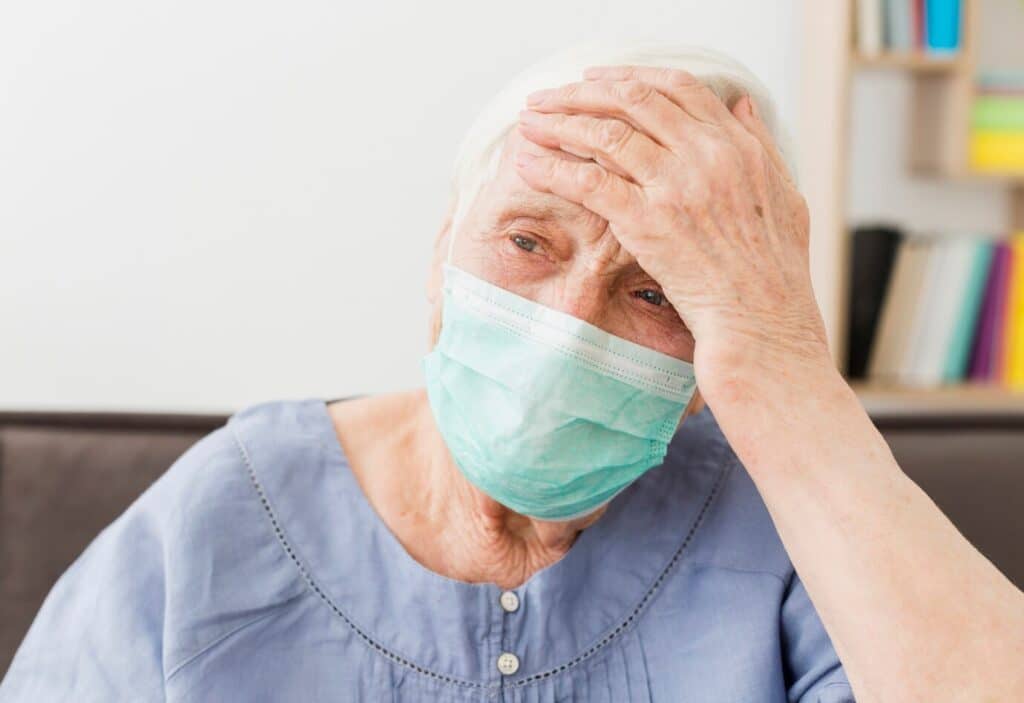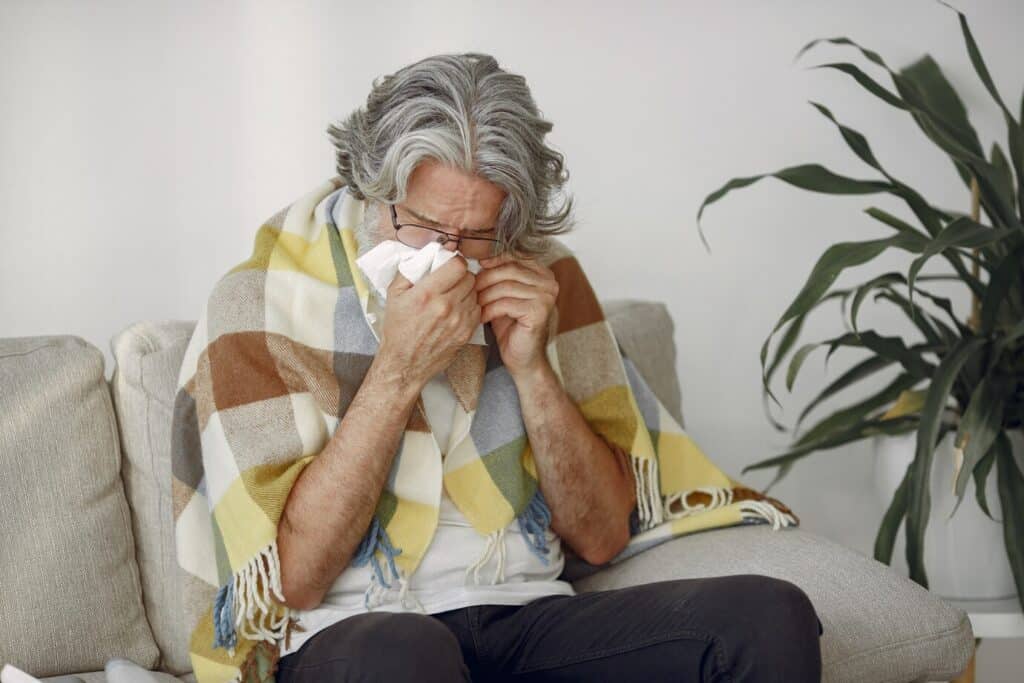Understanding Influenza in the Elderly and Its Dangers
Influenza in the elderly is a pressing health concern that goes far beyond typical flu symptoms. Seniors aged 65 and older are particularly vulnerable due to weakened immune systems and the presence of chronic conditions. Every year, influenza leads to thousands of hospitalizations and deaths among this age group. For older adults, what might be a mild inconvenience for a younger person can quickly become a life-threatening event.
The danger of influenza in the elderly lies in both its physical effects and the complications it can cause. Hospital stays, longer recovery times, and higher mortality rates are just a few consequences. That’s why early prevention, timely treatment, and community education are essential in helping protect this population. At Lakeview Senior Living in Lincoln City, OR, our mission is to support residents with proactive care and education during flu season and beyond. Learn more about our services here: Lakeview Senior Living.
How the Flu Affects Older Adults
Flu in the elderly symptoms often present differently than in younger people. Seniors may not always run a high fever but might experience extreme fatigue, confusion, chest discomfort, or worsening of existing health issues. These symptoms can escalate quickly, making early detection vital.
The answer to the question “Can the flu kill the elderly?” is, unfortunately, yes. According to the CDC, a significant percentage of flu-related deaths each year occur in people over 65. Because their immune systems cannot mount a strong defense, even a seemingly mild infection can spiral into pneumonia, sepsis, or cardiac complications.
Prompt action is crucial. Knowing when the elderly should go to the hospital with the flu is often a life-saving decision. Signs like difficulty breathing, chest pain, severe weakness, or confusion signal that medical help is needed immediately. If in doubt, always seek emergency care.
Why Is Influenza A Dangerous for the Elderly?
One specific strain, Influenza A, is notably aggressive in older adults. So, is influenza A dangerous for the elderly? Absolutely. This strain has been linked to higher hospitalization and death rates, especially during peak flu seasons. It spreads easily in communal settings like assisted living communities, which is why infection control is a top priority.
You can read more about how Lakeview Senior Living prioritizes resident safety during flu season by visiting our blog.
Treatment Options: How Do You Treat the Flu in the Elderly?
Understanding how to treat the flu in the elderly begins with quick intervention. Antiviral medications such as oseltamivir (Tamiflu) are most effective when started within the first 48 hours of symptom onset. These treatments can shorten illness duration and reduce the risk of serious complications.
Beyond medication, supportive care plays a crucial role. Adequate rest, hydration, and monitoring are essential. In assisted living communities, caregivers ensure seniors receive prompt care, monitor worsening symptoms, and manage other chronic illnesses that the flu might aggravate. Complementary approaches like nutritional support and proper hydration are equally critical.
For a closer look at influenza care options, this Mayo Clinic resource offers reliable, in-depth guidance.

The Costs and Burdens of Flu in Seniors
The financial toll of influenza in the elderly is staggering. From ER visits to prolonged hospital stays and long-term rehabilitation, the cost can be devastating for families. As highlighted in this memory care cost article, planning and prevention are key to avoiding financial strain.
Can the flu kill the elderly financially, too? While it may sound harsh, the medical expenses, missed work for caregivers, and the emotional burden can be overwhelming. By prioritizing flu vaccines and care plans, families can significantly reduce these risks.
Prevention: What Seniors and Families Can Do
Annual Flu Vaccination
The flu vaccine remains the most effective method of protecting against influenza in the elderly. Although some may question its efficacy, studies show it reduces flu-related hospitalizations in older adults by over 40%. Specialized high-dose and adjuvanted vaccines are specifically designed for seniors, improving protection for those with weakened immune systems.
Hygiene and Lifestyle Practices
In addition to vaccination, daily preventive practices are crucial. Encouraging frequent handwashing, disinfecting surfaces, and minimizing contact with those who are ill can limit virus spread. Community engagement also plays a role—helping seniors feel supported increases adherence to health recommendations. For more information, refer to the CDC’s flu prevention guide.
Monitoring and Early Action
Knowing the flu in the elderly can help caregivers act before complications arise. At Lakeview Senior Living, our team is trained to recognize early signs and respond quickly. This approach often prevents hospitalization and ensures faster recovery. We also advise families on when the elderly should go to the hospital with the flu, so they’re equipped to make timely decisions.
Social and Medical Factors Influencing Flu Severity
Certain seniors face higher risks due to socioeconomic or environmental factors. Limited access to healthcare, low income, or living alone can reduce the likelihood of receiving timely flu treatment or vaccination. These social determinants of health have a significant impact on how seniors experience influenza.
For example, a senior without transportation may delay seeing a doctor. Or someone with limited income may forgo the flu vaccine altogether. These situations highlight the importance of community-based programs and resources, such as free flu shot clinics or wellness visits offered at senior living communities.
Proactive Care at Lakeview Senior Living
At Lakeview Senior Living, we understand the serious risks of influenza in the elderly and are dedicated to protecting our residents. Our proactive approach includes:
- On-site flu vaccination clinics
- Staff trained to spot flu in the elderly symptoms
- Quick access to healthcare providers
- Sanitation protocols during flu season
- Educational resources for families and residents
For those interested in learning more, you can schedule a tour to see our health and safety protocols in action.

A Community Approach to Combating Flu in Seniors
Combating influenza in the elderly requires a united effort. Families, caregivers, healthcare providers, and community members all play a role. From recognizing when the elderly should go to the hospital with the flu to understanding that influenza is dangerous for the elderly, education is key.
By staying informed and proactive, we can reduce suffering, cut healthcare costs, and improve outcomes. If you’re unsure how to treat the flu in the elderly, don’t hesitate to consult medical professionals or trusted organizations like the National Institute on Aging.
Protecting Seniors from the Flu Starts Now
Don’t wait until it’s too late. The flu isn’t just a seasonal nuisance—it’s a potentially deadly threat to older adults. Understanding the unique risks of influenza in the elderly, learning to identify flu in the elderly symptoms, and knowing how do you treat the flu in the elderly can make all the difference.
At Lakeview Senior Living, we take this responsibility seriously. With compassionate care, education, and preventive strategies, we are committed to protecting your loved ones. Schedule your visit today or call us at 541-994-7400 to learn more about our approach to senior health and wellness.
Let’s work together to shield our seniors from the flu—and give them the vibrant, secure lives they deserve.
How Do The Costs Of Moving Into A Quality Senior Care Community Compare With The Costs Of Staying At Home?Compare The Costs of Senior Living vs Staying at Home
Frequently Asked Questions
What happens if an elderly person gets the flu?
When an elderly person gets the flu, they are at a higher risk for severe complications due to a weakened immune system. Symptoms may include high fever, fatigue, cough, and body aches, and can escalate into pneumonia or worsen chronic conditions like asthma or heart disease. It’s essential to monitor symptoms and seek medical attention if they worsen quickly.
How do you treat influenza A in the elderly?
Treatment for influenza A in the elderly typically involves antiviral medications, such as oseltamivir (Tamiflu), which are most effective when administered within 48 hours of symptom onset. Supportive care includes rest, hydration, and over-the-counter medications to manage symptoms like fever and congestion. In some cases, hospitalization may be required for severe symptoms or complications.
How serious is influenza A in the elderly?
Influenza A can be very serious in older adults, often leading to hospitalization or even death. Their weakened immune systems make it harder to fight off infections, increasing the risk of complications such as pneumonia, dehydration, and worsening of existing health conditions. Vaccination and early treatment are essential for reducing the risk.
How long does influenza A last in the elderly?
In the elderly, influenza A typically lasts about 5 to 7 days, but fatigue and coughing may persist for several weeks. Recovery can be slower compared to younger individuals, especially if complications arise. Prompt treatment and rest can help reduce the duration and severity of symptoms.








